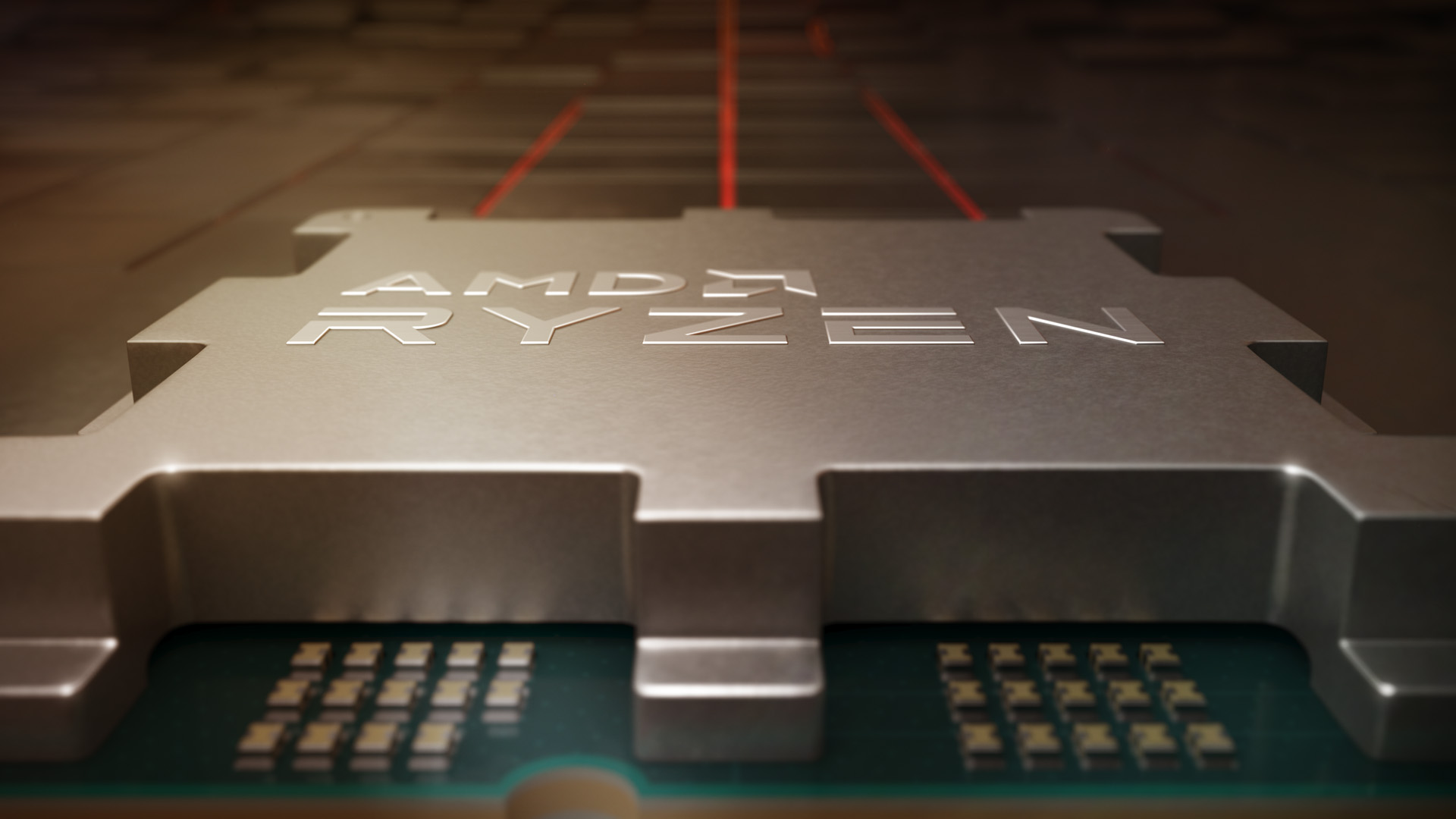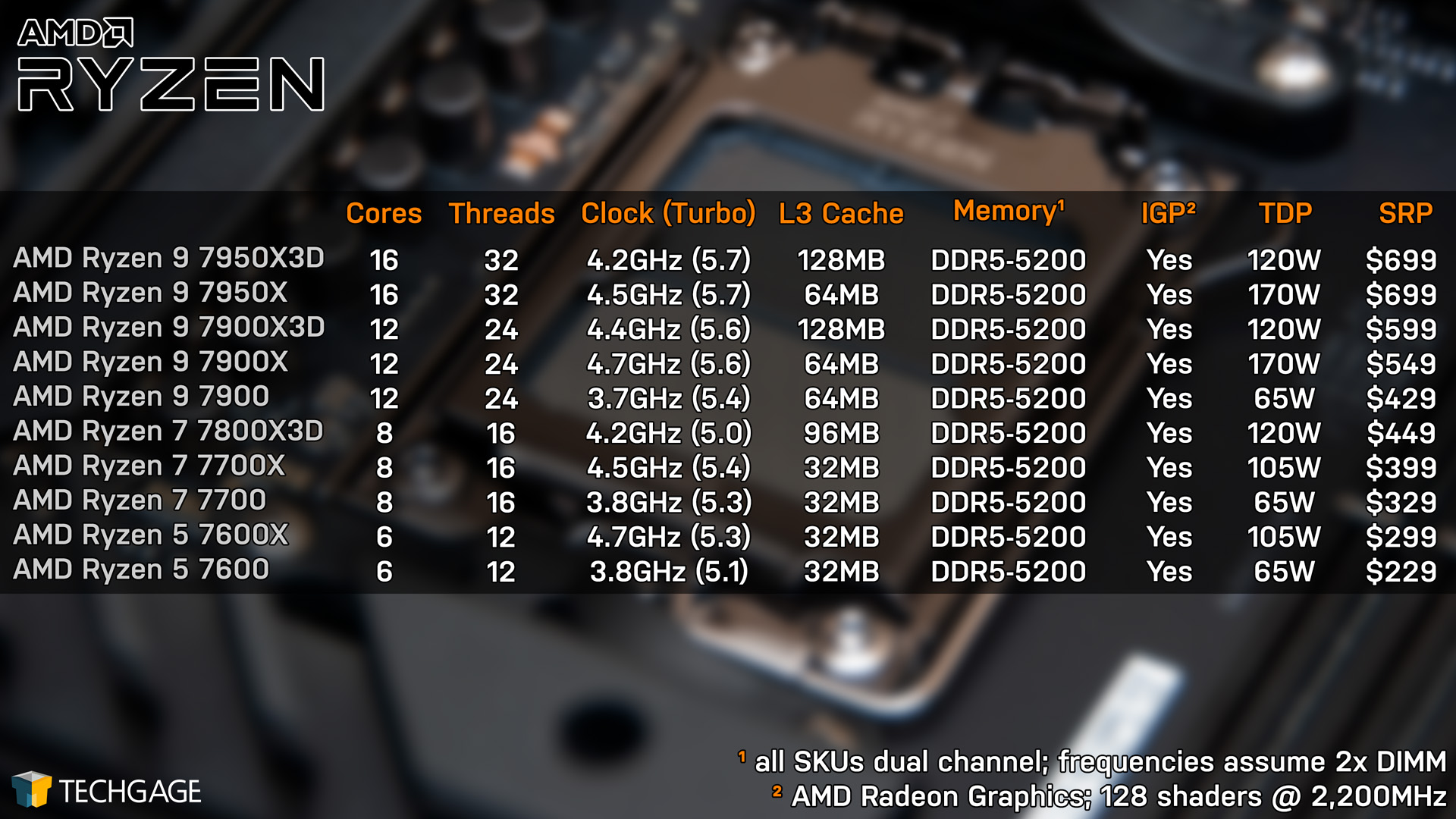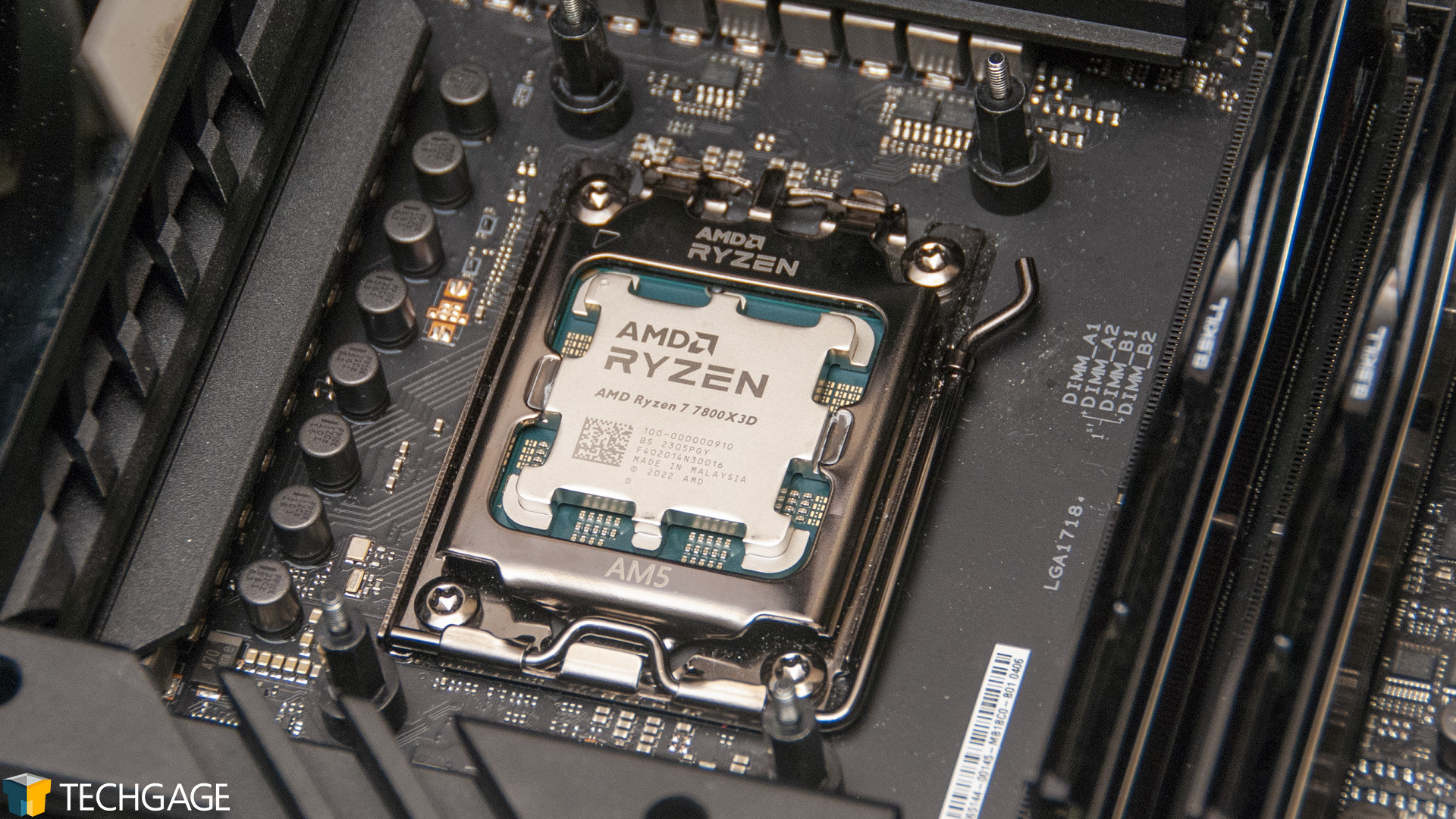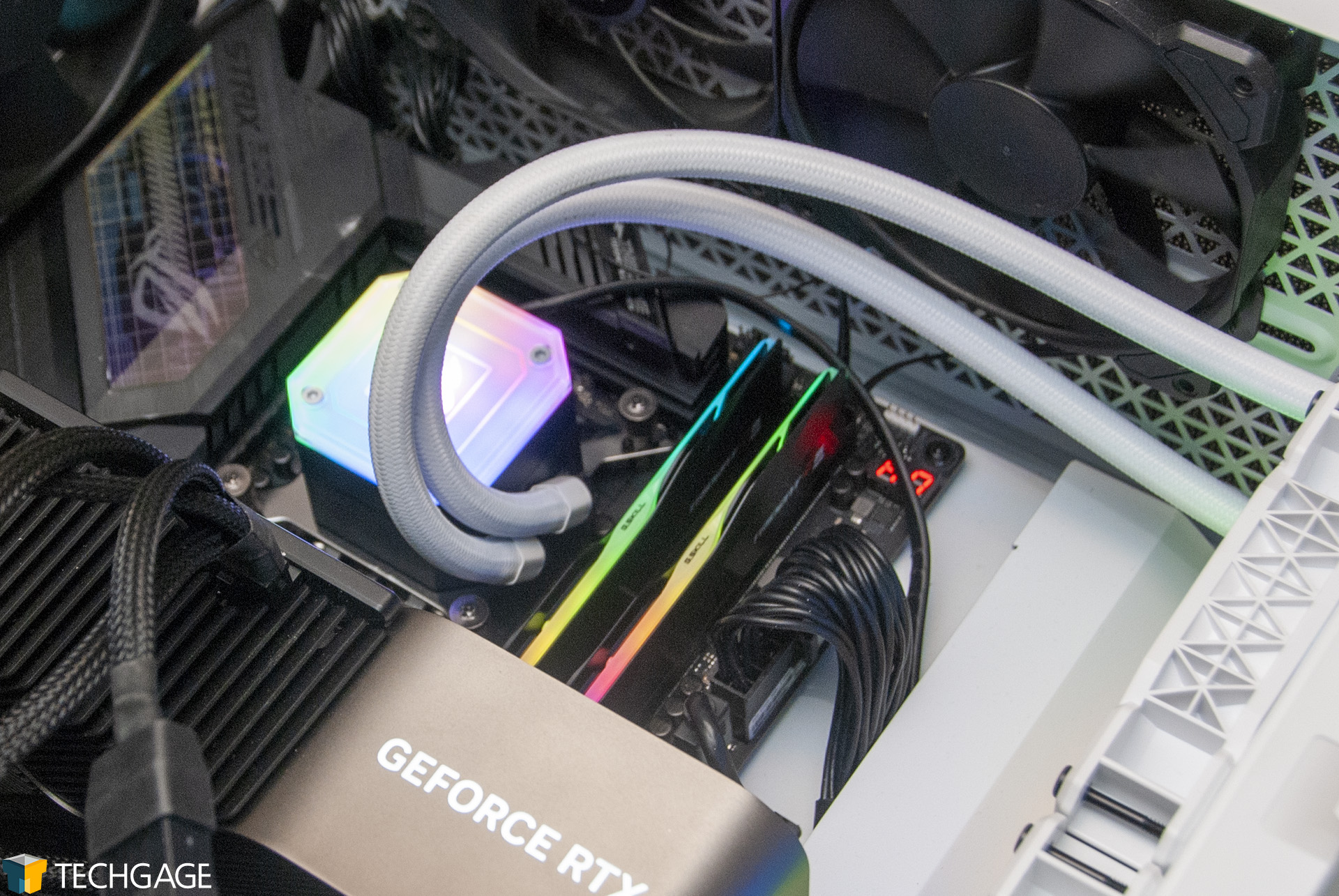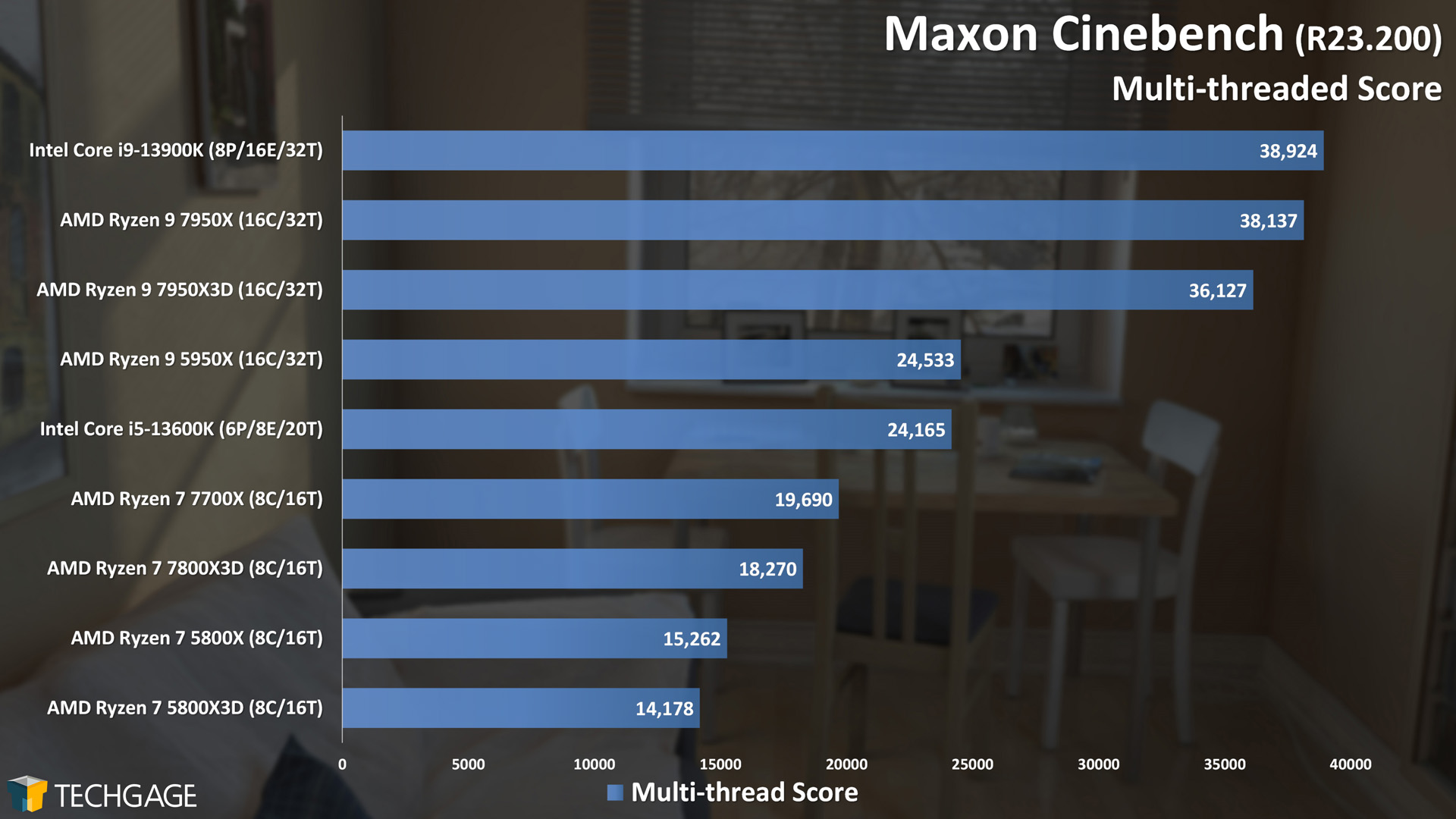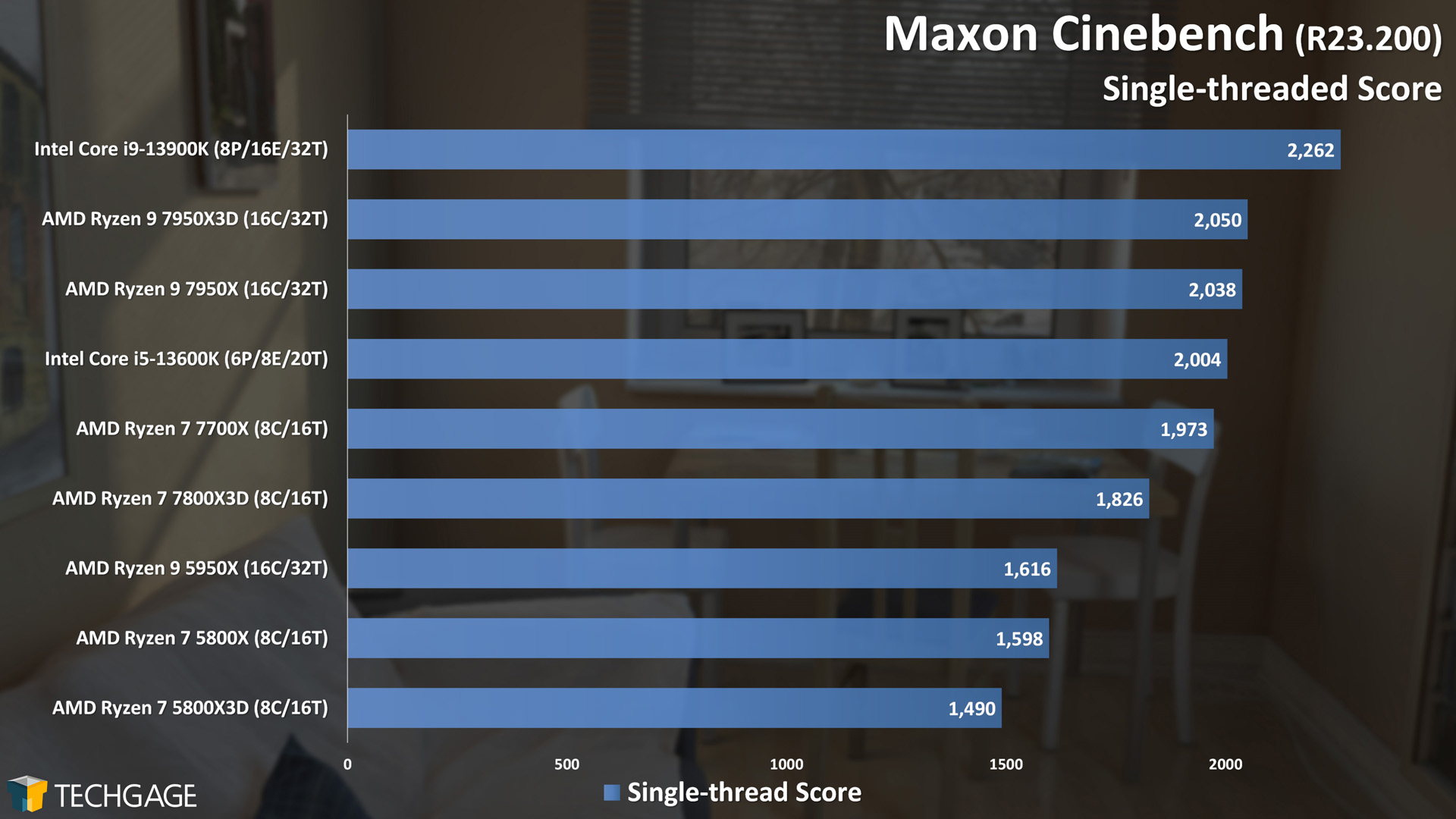- Qualcomm Launches Snapdragon 4 Gen 2 Mobile Platform
- AMD Launches Ryzen PRO 7000 Series Mobile & Desktop Platform
- Intel Launches Sleek Single-Slot Arc Pro A60 Workstation Graphics Card
- NVIDIA Announces Latest Ada Lovelace Additions: GeForce RTX 4060 Ti & RTX 4060
- Maxon Redshift With AMD Radeon GPU Rendering Support Now Available
AMD Ryzen 7 7800X3D Gaming Processor Review
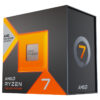
Following-up on our recent look at AMD’s 3D V-Cache infused Ryzen 9 7950X3D 16-core gaming processor, we’re now able to post our findings of the slimmer 8-core Ryzen 7 7800X3D. The results may surprise you, so it’s well worth poring over the data to make sure you don’t opt for more processor than you actually need.
Page 1 – Introduction, Test Systems & Cinebench Scores
For a look at AMD’s Zen 4 and Intel’s Raptor Lake CPUs in creator workloads, check out our recent in-depth look.
When we posted our review of AMD’s Ryzen 9 7950X3D last week, it came later than we expected, as we had to test, retest, and sanity check ad nauseam in order to feel truly confident in every result. While it wasn’t great being late, it worked out well for this review, as we were able to immediately get to 7800X3D testing as soon as the 7950X3D review went live. That means all performance measured for this article was the result of testing done within the past two weeks.
As our testing of the 7950X3D and other chips helped us surmise, AMD’s highest-end desktop CPU is super-fast for gaming, but with the results seen from the last-gen 8-core Ryzen 7 5800X3D, we had a feeling that most gamers could instead opt for a lesser-expensive option, and sacrifice effectively nothing. The results will soon show whether or not that was a wise assumption.
Whereas the Ryzen 9 7950X3D’s design puts all of its extra cache tethered to one of the two CCDs, the Ryzen 7 7800X3D has a simpler design, in that it has only one CCD to begin with. While the 7950X3D requires various bits of software to be in place in order to ensure games hit the correct CCD, the 7800X3D’s design should mean there will be almost no chance of an issue where someone is not seeing the performance they should be. That said, AMD’s chipset driver still installs the 3D V-Cache Performance Optimizer if a 7800X3D is present, so it could be things are still made more efficient with it.
Considering we just published our look at the 7950X3D less than two weeks ago, this article almost feels like deja vu – so, let’s move things along with a quick look at our test rigs, quick Cinebench scores, and then tackle the first bit of performance on page 2.
Techgage’s CPU Testing Platforms
| AMD AM5 Testing Platform | |
| Processors | AMD Ryzen 9 7950X3D (4.2GHz, 16C/32T) AMD Ryzen 7 7800X3D (4.2GHz, 8C/16T) AMD Ryzen 9 7950X (4.5GHz, 16C/32T) AMD Ryzen 7 7700X (4.5GHz, 8C/16T) |
| Motherboard | ASUS ROG CROSSHAIR X670E HERO 7700X and 7950X tested with 0922 BIOS (February 23, 2022) 7800X3D tested with 9927 BIOS beta (March 1, 2022) 7950X3D tested with 9922 BIOS beta (February 3, 2022) |
| Memory | G.SKILL Trident Z5 Neo RGB (F5-6000J3038F16G) 16GB x2 EXPO set to DDR5-6000 (30-38-38-96, 1.35V) |
| Graphics | NVIDIA RTX 4090 (24GB; GeForce 531.26) |
| Storage | WD Blue 3D NAND 1TB (SATA) Mushkin Gamma 2TB (Gen4 NVMe) |
| Power Supply | Cooler Master Silent Pro Hybrid (1300W) |
| Chassis | NZXT H710i Mid-tower |
| Cooling | NZXT Kraken X63 (280mm) |
| Et cetera | Windows 11 Pro 22H2 (22621) AMD Chipset Driver: 5.02.19.2221 |
| Intel LGA1700 Test Platform | |
| Processors | Intel Core i9-13900K (3.0GHz, 24C/32T) Intel Core i5-13600K (3.5GHz, 14C/20T) |
| Motherboard | ASUS ROG STRIX Z690-E GAMING WIFI CPUs tested with 2204 BIOS (November 30, 2022) |
| Memory | G.SKILL Trident Z5 RGB (F5-6000J3040F16G) 16GB x2 XMP set to DDR5-6000 (30-40-40-96, 1.35V) |
| Graphics | NVIDIA RTX 4090 (24GB; GeForce 531.26) |
| Storage | WD Blue 3D NAND 1TB (SATA 6Gbps) Mushkin Gamma 2TB (Gen4 NVMe) |
| Power Supply | Corsair RM1000x (1000W) |
| Chassis | Corsair 4000X Mid-tower |
| Cooling | Corsair H150i ELITE CAPELLIX (360mm) |
| Et cetera | Windows 11 Pro 22H2 (22621) Intel Chipset Driver: 10.1.19222.8341 Intel ME Driver: 2242.3.34.0 |
| AMD AM4 Test Platform | |
| Processors | AMD Ryzen 9 5950X (3.4GHz, 16C/32T) AMD Ryzen 7 5800X3D (3.4GHz, 8C/16T) AMD Ryzen 7 5800X (3.8GHz, 8C/16T) |
| Motherboard | ASRock X570 TAICHI CPUs tested with BIOS P5.01 (January 18, 2023) |
| Memory | G.SKILL FlareX (F4-3200C14-8GFX) 16GB x2 XMP set to DDR4-3200 (14-14-14-34, 1.35V) |
| Graphics | NVIDIA RTX 4090 (24GB; GeForce 531.26) |
| Storage | WD Blue 3D NAND 1TB (SATA 6Gbps) Mushkin Gamma 2TB (Gen4 NVMe) |
| Power Supply | Corsair RM850X (850W) |
| Chassis | Fractal Design Define C |
| Cooling | AMD Wraith Prism Air Cooler |
| Et cetera | Windows 11 Pro 22H2 (22621) AMD Chipset Driver: 5.02.19.2221 |
Testing Considerations
We use an up-to-date Windows for our testing, as well as the latest chipset driver for each respective platform. In the pursuit of accurate, repeatable benchmarks, here are some basic guidelines we follow:
- Disruptive services are disabled; eg: Search, Cortana, User Account Control, Defender, etc.
- Overlays and / or other extras are not installed with the graphics driver.
- Vsync is disabled at the driver level (and in any tested game or application).
- Default (usually Balanced) power profile is used (with screen and sleep timeouts disabled).
- OSes are never transplanted from one machine to another.
- We validate system configurations before kicking off any test run.
- Testing doesn’t begin until the PC is idle (keeps a steady minimum wattage).
- All tests are repeated until there is a high degree of confidence in the results.
- Only one game title is tested per OS boot to prevent phantom processes from interfering.
- We do not use outdated data. Performance numbers seen in this article are current.
Before each one of our tested processors went through the game test gauntlet, we ran Cinebench to gauge their overall potential:
Compared to the (also) 8-core Ryzen 7 7700X, the 7800X3D loses a bit of overall performance for both single- and multi-thread operation thanks to its slightly lower clock speed, but of course, that’s not going to matter so much for most games when the cache is (more than) doubled. Let’s see how it compares against not just the 7950X3D, but also the 5800X3D, beginning on the next page.
Support our efforts! With ad revenue at an all-time low for written websites, we're relying more than ever on reader support to help us continue putting so much effort into this type of content. You can support us by becoming a Patron, or by using our Amazon shopping affiliate links listed through our articles. Thanks for your support!




